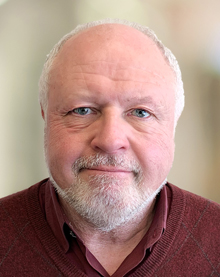Printed in the Winter 2021 issue of Quest magazine.
Citation: Smoley, Richard, "From the Editor’s Desk" Quest 109:1, pg 2
 Full disclosure up front: I know nothing about the topic of this issue.
Full disclosure up front: I know nothing about the topic of this issue.
The theme is Enlightenment, and although I’ve read and heard a good deal about it over the years, I realize it is a subject about which I am entirely ignorant.
In his article in this issue, John Cianciosi quotes the Buddhist monk Ajahn Brahm, who says there are nine things that an enlightened being cannot do: “store up possessions, intentionally kill any form of life, steal, perform sexual intercourse, tell a deliberate lie, and act improperly out of desire, out of ill will, out of delusion, or out of fear.”
This settles the matter. I am nowhere near this level, and I have never met anyone who was. Moreover, according to the literature, full enlightenment—if there is such a thing—is a radically different state of consciousness from any we are familiar with.
All these things suggest that what I think I know about enlightenment has little to do with the actuality. Moreover, what I think I may know about enlightenment may be an impediment to realizing it.
I write this a month before the elections, so polls are thick in the atmosphere. Every poll shows a sizable group of people who answer, “Don’t know,” to whatever question is asked.
Once I used to think that these people were ignorant not to have opinions about the most vital topics of our times.
At this point I’m not so sure. I remember too many times over the years when I was upset about some major issue. In the long run, I often learned that my opinions were based on supposed facts that had nothing to do with reality. As a result I have become much more consciously agnostic about many of the great concerns of our times, no matter how obvious the “right” answer may appear to be.
Clare Goldsberry, in her Members’ Forum piece, discusses not knowing. How could not knowing be an approach to enlightenment? After all, avidya—usually translated as ignorance but perhaps better translated as nescience or even obliviousness—is, according to Buddhist teaching, the primordial cause of suffering.
Clearly we are dealing with something different here than ignorance, say, of historical facts or the laws of physics. The classic answer to this problem appears in a story about Socrates, recounted in Plato’s Apology. Someone sent to the oracle at Delphi—then held in the greatest esteem, consulted even on matters of high state—and asked whether there was anyone wiser than Socrates. The oracle replied that there was not. Socrates was puzzled by this reply: he could not understand what it meant, yet he was convinced that the god could not lie. Finally, he concluded, “None of us happens to know anything beautiful and good, but they think they know, knowing not; but I do not know, and don’t think I do. So by this little bit I might appear to be wiser.” Yet Socrates was so wise that all the philosophers that came before him are lumped together as the pre-Socratics.
On a more homely note, the nineteenth-century American humorist Josh Billings wrote, “I honestly believe it iz better tew know nothing than two know what ain’t so” (a quote often attributed to Will Rogers).
Of course there is a more active nescience—not knowing and actively refusing to know. Often it is a matter of knowing “what ain’t so” and refusing to let that be challenged. The difference is that the not knowing of Socrates and Josh Billings admits the possibility of knowing and an openness to it.
Say you come across an unfamiliar word. Your insecurity may lead you to claim that you don’t need to know it and that big words are pretentious. Or you can simply look the word up, and then you know it. Such is the difference between plain ignorance and nescience (a word that to me connotes an active resistance to knowledge).
How does this relate to enlightenment? From what I have already said, it’s clear that I don’t know. But it may go something like this: I look out at the world and assume that my opinion about it is correct. I see the tables, chairs, trees, and flowers and assume that I know what they are. But in reality I see only the past—my past experiences and preconceptions about them.
One way out of this ignorance is to set aside this collection of data in my mind and see the world as it is in its immediacy—what some philosophers have called its “just-so-ness.” At that point the world opens up some of its inscrutable richness.
It would be exaggerating to call this sense of greater richness enlightenment. But it may not be totally wrong to say that it is closer to enlightenment than the whirligig of thoughts, feelings, and preconceptions in which we customarily live.
To conclude with yet another thing I don’t know: is enlightenment permanent, stable, and irrevocable, as certain sacred texts seem to indicate? Or is it just another in an endless series of steps toward greater opening, knowing, and fulfillment?
In short, is there someplace where you stop, or is there always further to go?
Richard Smoley

